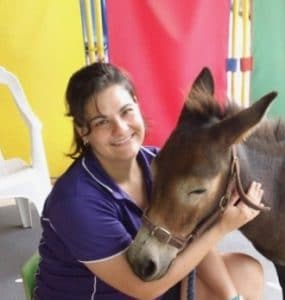Communication is a fundamental aspect of human interaction. It’s a large part of how we express ourselves, connect with others and navigate the world around us. For children, speech and language development play a critical role in their ability to communicate effectively. However, some children may experience delays or disorders that can impact their communication skills. This is where early intervention speech therapy comes in.

What Is Early Intervention Speech Therapy and How Can It Help Your Child?
Early intervention speech therapy is a form of therapy that focuses on improving communication skills in young children who may be experiencing speech and language delays or disorders. The goal of early intervention speech therapy is to identify and address speech difficulties as early as possible to prevent further complications and support children in achieving their full communication potential.
Speech therapy for children typically involves a variety of exercises and activities that are tailored to each child’s specific needs. These activities may include practicing articulation, improving vocabulary and language comprehension and developing social communication skills.
Early intervention speech therapy can help your child in several ways, including:
- More effective communication
- Reduced feelings of frustration or isolation
- Improved social and emotional wellbeing
- Enhanced academic performance
- Prevention of more severe speech and language disorders
The Importance of Early Detection and Intervention for Speech and Language Delays
Early detection and intervention for speech and language delays are crucial for ensuring that children receive the help they need to develop their communication skills. Delayed speech and language development can lead to difficulties in social interactions, academic performance and even mental health issues. Early intervention can help prevent these challenges and improve outcomes for children.
Types of Speech and Language Issues That Can Be Addressed with Early Intervention Therapy
Early intervention speech therapy can address a wide range of speech and language issues. Common examples include:
- Articulation disorders, where a child has difficulty pronouncing certain sounds or words
- Language delays, where a child has difficulty understanding or expressing language
- Fluency disorders, such as stuttering
- Voice disorders, where a child’s voice quality is affected
How Early Speech Therapy Can Lead to Better Communication and Social Skills Later on
Early intervention speech therapy can have a significant impact on a child’s communication and social skills later in life. By addressing speech and language delays early, children can develop the necessary skills to interact with their peers, communicate effectively with adults and succeed academically. In addition, early intervention can help prevent the development of mental health issues such as anxiety and depression that can arise from communication difficulties.
The Role of Parents and Caregivers in Early Intervention Speech Therapy
Parents and caregivers play a crucial role in early intervention speech therapy. They’re often the first to notice speech delays in their children and can work with speech therapists to develop a plan for intervention. Parents and caregivers can also help reinforce the skills that their children learn during therapy sessions by practicing them at home.
In conclusion, early intervention speech therapy can have a profound impact on a child’s communication and social skills. By addressing speech and language delays early, children can develop the necessary skills to communicate effectively and succeed both socially and academically. If you’re concerned about your child’s speech and language development, seek the advice of a qualified professional at Stepping Stones in Life Therapy Service to receive further support and guidance.
Author

Barbara Kapser
Barbara Kapser is our psychologist at Stepping Stones in Life Therapy Service in Darwin. She's a member with the Australian Psychological Society and the Australian Association for Infant Mental Health.
She specialises in perinatal infant mental health, attachment disorders, developmental trauma and behaviour support.










